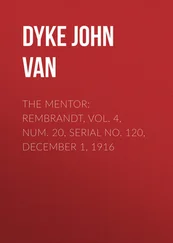John Shirley - The Belonging Kind
Здесь есть возможность читать онлайн «John Shirley - The Belonging Kind» весь текст электронной книги совершенно бесплатно (целиком полную версию без сокращений). В некоторых случаях можно слушать аудио, скачать через торрент в формате fb2 и присутствует краткое содержание. Жанр: Фантастика и фэнтези, на английском языке. Описание произведения, (предисловие) а так же отзывы посетителей доступны на портале библиотеки ЛибКат.
- Название:The Belonging Kind
- Автор:
- Жанр:
- Год:неизвестен
- ISBN:нет данных
- Рейтинг книги:5 / 5. Голосов: 1
-
Избранное:Добавить в избранное
- Отзывы:
-
Ваша оценка:
- 100
- 1
- 2
- 3
- 4
- 5
The Belonging Kind: краткое содержание, описание и аннотация
Предлагаем к чтению аннотацию, описание, краткое содержание или предисловие (зависит от того, что написал сам автор книги «The Belonging Kind»). Если вы не нашли необходимую информацию о книге — напишите в комментариях, мы постараемся отыскать её.
The Belonging Kind — читать онлайн бесплатно полную книгу (весь текст) целиком
Ниже представлен текст книги, разбитый по страницам. Система сохранения места последней прочитанной страницы, позволяет с удобством читать онлайн бесплатно книгу «The Belonging Kind», без необходимости каждый раз заново искать на чём Вы остановились. Поставьте закладку, и сможете в любой момент перейти на страницу, на которой закончили чтение.
Интервал:
Закладка:
Sometimes he watched the hotel he'd seen her go into. He looked carefully at each of the couples who came and went. Not that he'd be able to spot her from her looks alone but there should be a feeling, some kind of intuitive recognition. He watched the couples and he was never sure.
In the following weeks he systematically visited every boozy watering hole in the city. Armed at first with a city map and five torn Yellow Pages, he gradually progressed to the more obscure establishments, places with unlisted numbers. Some had no phone at all. He joined dubious private clubs, discovered unlicensed after-hours retreats where you brought your own, and sat nervously in dark rooms devoted to areas of fringe sexuality he had not known existed.
But he continued on what became his nightly circuit. He always began at the Backdoor. She was never there, or in the next place, or the next. The bartenders knew him and they liked to see him come in, because he brought drinks continuously, and never seemed to get drunk. So he stared at the other customers a bit so what?
Coretti lost his job. He'd missed classes too many times. He'd taken to watching the hotel when he could, even in the daytime. He'd been seen in too many bars. He never seemed to change his clothes. He refused night classes. He would let a lecture trail off in the middle as he turned to gaze vacantly out the window.
He was secretly pleased at being fired. They had looked at him oddly at faculty lunches when he couldn't eat his food. And now he had more time for the search.
Coretti found her at 2:15 on a Wednesday morning, in a gay bar called the Barn. Paneled in rough wood and hung with halters and rusting farm equipment, the place was shrill with perfume and laughter and beer. She was everyone's giggling sister, in a blue-sequined dress, a green feather in her coiffed brown hair. Through a sweeping sense of almost cellular relief, Coretti was aware of a kind of admiration, a strange pride he now felt in her and her kind. Here, too, she belonged. She was a representative type, a fag-hag who posed no threat to the queens or their butchboys. Her companion had become an ageless man with carefully silvered temples, an angora sweater, and a trench coat.
They drank and drank, and went laughing laughing just the right sort of laughter out into the rain. A cab was waiting, its wipers duplicating the beat of Coretti's heart.
Jockeying clumsily across the wet sidewalk, Coretti scurried into the cab, dreading their reaction.
Coretti was in the back seat, beside her. The man with silver temples spoke to the driver.
The driver muttered into his hand mike, changed gears, and they flowed away into the rain and the darkened streets. The cityscape made no impression on Coretti, who, looking inwardly, was seeing the cab stop, the gray man and the laughing woman pushing him out and pointing, smiling, to the gate of a mental hospital. Or: the cab stopping, the couple turning, sadly shaking their heads. And a dozen times he seemed to see the cab stopping in an empty side street where they methodically throttled him. Coretti left dead in the rain. Because he was an outsider.
But they arrived at Coretti's hotel. In the dim glow of the cab's dome light he watched closely as the man reached into his coat for the fare. Coretti could see the coat's lining clearly and it was one piece with the angora sweater. No wallet bulged there, and no pocket. But a kind of slit widened. It opened as the man's fingers poised over it, and it disgorged money. Three bills, folded, were extruded smoothly from the slit. The money was slightly damp. It dried, as the man unfolded it, like the wings of a moth just emerging from the chrysalis.
"Keep the change," said the belonging man, climbing out of the cab. Antoinette slid out and Coretti followed, his mind seeing only the slit. The slit wet, edged with red, like a gill.
The lobby was deserted and the desk clerk bent over a crossword. The couple drifted silently across the lobby and into the elevator, Coretti close behind. Once he tried to catch her eye, but she ignored him. And once, as the elevator rose seven floors above Coretti's own, she bent over and sniffed at the chrome wall ashtray, like a dog snuffling at the ground.
Hotels, late at night, are never still. The corridors are never entirely silent. There are countless barely audible sighs, the rustling of sheets, and muffled voices speaking fragments out of sleep. But in the ninth-floor corridor, Coretti seemed to move through a perfect vacuum, soundless, his shoes making no sound at all on the colorless carpet and even the beating of his outsider's heart sucked away into the vague pattern that decorated the wallpaper.
He tried to count the small plastic ovals screwed on the doors, each with its own three figures, but the corridor seemed to go on forever. At last the man halted before a door, a door veneered like all the rest with imitation rosewood, and put his hand over the lock, his palm flat against the metal. Something scraped softly and then the mechanism clicked and the door swung open. As the man withdrew his hand, Coretti saw a grayish-pink, key-shaped sliver of bone retract wetly into the pale flesh.
No light burned in that room, but the city's dim neon aura filtered in through venetian blinds and allowed him to see the faces of the dozen or more people who sat perched on the bed and the couch and the armchairs and the stools in the kitchenette. At first he thought that their eyes were open, but then he realized that the dull pupils were sealed beneath nictitating membranes, third eyelids that reflected the faint shades of neon from the window. They wore whatever the last bar had called for; shapeless Salvation Army overcoats sat beside bright suburban leisurewear, evening gowns beside dusty factory clothes, biker's leather by brushed Harris tweed. With sleep, all spurious humanity had vanished. They were roosting.
His couple seated themselves on the edge of the Formica countertop in the kitchenette, and Coretti hesitated in the middle of the empty carpet. Light-years of that carpet seemed to separate him from the others, but something called to him across the distance, promising rest and peace and belonging. And still he hesitated, shaking with an indecision that seemed to rise from the genetic core of his body's every cell.
Until they opened their eyes, all of them simultaneously, the membranes sliding sideways to reveal the alien calm of dwellers in the ocean's darkest trench.
Coretti screamed, and ran away, and fled along corridors and down echoing concrete stairwells to cool rain and the nearly empty streets.
Coretti never returned to his room on the third floor of that hotel. A bored house detective collected the linguistics texts, the single suitcase of clothing, and they were eventually sold at auction. Coretti took a room in a boardinghouse run by a grim Baptist teetotaler who led her roomers in prayer at the start of every overcooked evening meal. She didn't mind that Coretti never joined them for those meals; he explained that he was given free meals at work. He lied freely and skillfully. He never drank at the boardinghouse, and he never came home drunk. Mr. Coretti was a little odd, but always paid his rent on time. And he was very quiet.
Coretti stopped looking for her. He stopped going to bars. He drank out of a paper bag while going to and from his job at a publisher's warehouse, in an area whose industrial zoning permitted few bars.
He worked nights. Sometimes, at dawn, perched on the edge of his unmade bed, drifting into sleep he never slept lying down, now he thought about her. Antoinette. And them. The belonging kind. Sometimes he speculated dreamily... . Perhaps they were like house mice, the sort of small animal evolved to live only in the walls of man-made structures.
A kind of animal that lives only on alcoholic beverages. With peculiar metabolisms they convert the alcohol and the various proteins from mixed drinks and wine and beers into everything they need. And they can change outwardly, like a chameleon or a rockfish, for protection. So they can live among us. And maybe, Coretti thought, they grow in stages. In the early stages seeming like humans, eating the food humans eat, sensing their difference only in a vague disquiet of being an outsider.
Читать дальшеИнтервал:
Закладка:
Похожие книги на «The Belonging Kind»
Представляем Вашему вниманию похожие книги на «The Belonging Kind» списком для выбора. Мы отобрали схожую по названию и смыслу литературу в надежде предоставить читателям больше вариантов отыскать новые, интересные, ещё непрочитанные произведения.
Обсуждение, отзывы о книге «The Belonging Kind» и просто собственные мнения читателей. Оставьте ваши комментарии, напишите, что Вы думаете о произведении, его смысле или главных героях. Укажите что конкретно понравилось, а что нет, и почему Вы так считаете.












